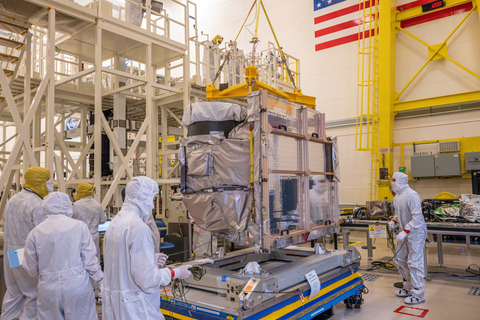MELBOURNE, Fla.--(BUSINESS WIRE)--The fourth Advanced Baseline Imager (ABI) built by L3Harris Technologies (NYSE:LHX) has been successfully integrated into NOAA’s Geostationary Operational Environmental Satellite-U (GOES-U), completing the series of advanced weather sensors for the GOES program, slated to launch in 2024.
The ABIs onboard the GOES series of satellites provide revolutionary technology by advancing weather observation and environmental monitoring services, and also by providing more advanced notice of fires, hurricanes, tornadoes and floods. The ABI provides high-resolution video of weather and environmental systems using 16 spectral bands delivering three times the amount of spectral coverage, four times the resolution and five times faster than the previous generation of GOES satellites.
For nearly 60 years, L3Harris has developed breakthrough technology and launched innovative solutions that further improve the accuracy of weather forecasts, measure climate change and increase life-saving warning times.
The third ABI is onboard NOAA’s GOES-T satellite, scheduled to launch March 1, 2022. GOES satellites are under command and control of the L3Harris-built enterprise ground system.
Photo Link: L3Harris.com
Image credit: Lockheed Martin
Caption: The fourth L3Harris-built Advanced Baseline Imager being integrated onto the GOES-U satellite, scheduled to launch in 2024.
About L3Harris Technologies
L3Harris Technologies is an agile global aerospace and defense technology innovator, delivering end-to-end solutions that meet customers’ mission-critical needs. The company provides advanced defense and commercial technologies across space, air, land, sea and cyber domains. L3Harris has approximately $17 billion in annual revenue and 47,000 employees, with customers in more than 100 countries. L3Harris.com.




